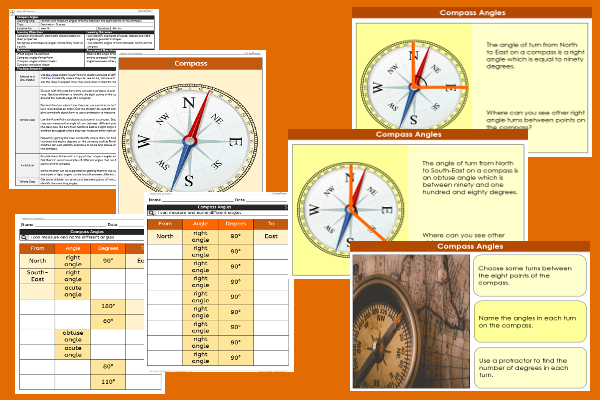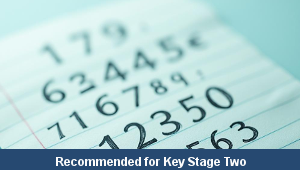Lesson Three – Compass Angles

This maths teaching pack for Key Stage Two gets the children to model and record how to use an angle protractor to identify and measure the angles of turns that can be found between the eight points of the compass.
The class can explain how to use the scale on a protractor correctly to measure the identified angles of turn on a compass to classify as right, acute or obtuse angles.
Download this teaching pack including a lesson plan, classroom activities and an interactive presentation to model and record how to use an angle protractor to identify and measure the angles of turns that can be found between the eight points of the compass
Activities in this teaching pack include a template to model using a protractor to identify and measure angles of turns between the eight points of the compass and a set of differentiated worksheets to model how to use a protractor correctly to identify and measure angles of turns found on a compass.
The interactive presentation gets the children to explore how to use a protractor to identify and measure angles of turns found between the eight points of the compass.
This lesson is part of a maths scheme of work to get the children to explore and record the properties of different shapes by identifying, classifying and measuring a range of their matching angles. There are teaching activities for shared learning, differentiated worksheets to support independent learning and interactive presentations to introduce concepts and key skills.
-

Maths Arithmetic Assessment
Assess abilities in solving arithmetic number problems for addition, subtraction, multiplication and division when working with informal and formal written calculations
-

Environment
Identify and describe some of the special landscapes and locations that can be found in the world and reflect on how they can be protected and preserved for the future
-

Silent Letter Words
Explore and illustrate the meanings and spellings of some different words with silent letters when using them in a range of topics and scenarios
-

Complaint Letters
Explain and model how to format and structure writing when composing letters of complaint about different issues and scenarios
